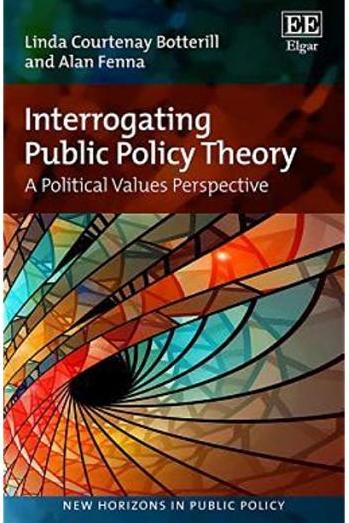'In this provocative volume, Botterill and Fenna make a strong case that the policy sciences have gone wrong, almost from the start, in embracing the rational chimera of an ordered and evidence-informed policy process while ignoring or downplaying the messy, value-laden, struggle which actually is public policy-making. Building from a cogent critique of three of the major contemporary frameworks in the policy sciences – the Advocacy Coalition Framework (ACF), the Multiple Streams Framework (MSF) and the Punctuated Equilibrium Theory (PET) – the authors argue that the insights which can be gleaned from political sciences-based research into public values, discourses, ideologies and conflicts serves as a much better base from which to construct a new Policy Science.’
– Michael Howlett, Simon Fraser University, Canada
‘The book combines critical analysis of established theories of the policy process illuminating their detachment from the political realities they seek to explain. By re-connecting analysis of public policy with politics, Botterill and Fenna’s volume is set to become a key reference for social scientists concerned with the role values play in the policy process.’
– Claire A. Dunlop, University of Exeter, UK
‘This book provides a much-needed wake up call for students of public policy. Its core claim that values, indeed political values, are at the very heart of public policy making and that therefore they should occupy a central place in policy analysis, is right on the mark. For too long has the field been dominated by theories of the policy process that conveniently ignore this foundational insight. Instead of perpetuating as these models do the myth of a rational public policy, Botterill and Fenna's hard-hitting critique takes us back to what really matters: the clash between contending ideas of the good society and the role and limits of the state's public problem-solving capacity.’
– Paul 't Hart, Utrecht University School of Governance, the Netherlands





